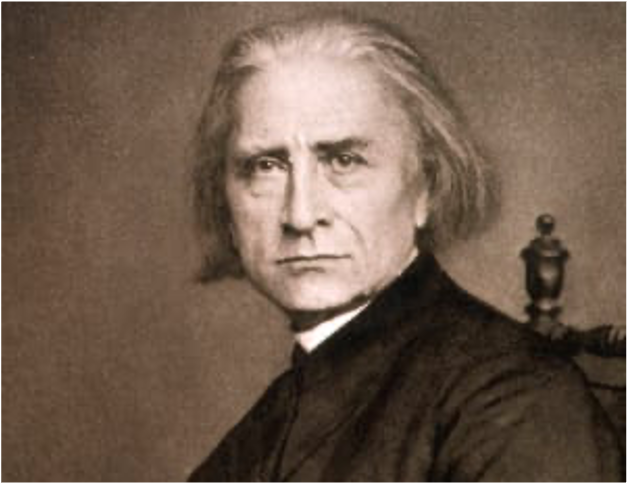


Hungarian pianist and composer, renowned for his influence and innovation in musical form, harmony and structure. His most important works are the "Hungarian Rhapsodies", "Mephisto Waltz", his piano concertos and "Liebestraum".
Liszt's talent was recognised early by Salieri, Mozart's proponent, who offered to teach him for free. His father, who played the cello and other musical instruments, passionately taught him music lessons and travelled with him to Vienna and Paris to help him enrich his music education.
With the help he received from Salieri and his father, Liszt became a virtuoso pianist and from an early age he started touring around Europe, giving concerts which had a significant impact and aroused great admiration.
Liszt became the piano "rock star" of his time. Women adored him to the point of literally attacking him. "We hear about women throwing their clothes onto the stage and taking his cigar butts and placing them in their cleavages," says Stephen Hough, a world-renowned concert pianist. His fame in society had reached unprecedented scale, thanks to his good looks and virtuosity.
"Liszt was a very dynamic personality," Hough says. "He was someone who seduced people — not just in a sexual way, but in a dramatic way. He was someone who, like a great speaker, was able to capture an audience". His virtuosity and strength of playing the piano usually destroyed the pianos, so in his concerts he usually required 2 pianos, as the first was likely to be destroyed during his performance. Gerstein, a renowned pianist says “He was possibly the greatest pianist that has ever lived,” and he continues “a composer of revolutionary works that exerted pivotal influence on those that followed – also a great teacher, humanist and possibly the nicest of the great musicians.”
One of Liszt's greatest music
achievements was the creation of the "symphonic poem", an orchestral music work which illustrated a poem, a story or a painting , much like opera but not sung.
Liszt had religious and philosophical aspirations throughout his life. At the end of his life, despite his popularity and scandalous personal life (such as having a relationship with a married woman who bore 3 children by him), Liszt decided to devote himself to religion.